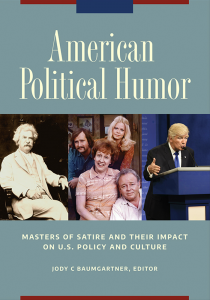Dr. Peter Francia presented his latest research paper, “The Paranoid Style and the Rise of Fake News in American Politics,” at the 2019 American Political Science Association’s annual conference in Washington, DC.
Abstract: In 1964, historian Richard Hofstadter authored the seminal text, The Paranoid Style in American Politics. Fifty-five years later in an era now littered with “fake news” websites and conspiracy theories that can spread rapidly over the Internet, Hofstadter’s investigation into “the politics of the irrational” warrants revisiting.
In this paper, I draw on the concept of the “paranoid style” originally developed by Hofstadter, but with a quantitative twist. Psychologists Allan Fenigstein and Peter Vanable (1992) developed a now widely used survey instrument to assess paranoid thought. Using data from an original nationwide and demographically representative survey of more than 800 adults that combines the Fenigstein and Vanable paranoia instrument with questions about popular present-day political conspiracies and well-publicized fake news stories, my research asks the question: Is there a relationship between paranoia and one’s willingness to accept or deny established political facts?
Drawing on Hofstadter’s earlier work about the “paranoid style,” I hypothesize that in today’s sometimes confusing information environment, which includes both credible and fake news, paranoia plays a significant role in understanding why some Americans are more susceptible than others to believing misinformation popularized through fake news websites. The results of this research confirm my expectations and raise potentially serious implications for democratic theory, which holds that an informed citizenry is necessary for elections and government to function properly. By examining the theory of the “paranoid style” in today’s modern context, this research offers potentially useful insights into better understanding why some people are better able to differentiate facts from fiction in the political arena. These results have clear and obvious implications for the future of American democracy.
Francia also served as a discussant on the panel, “Budgets and Attitudes Toward Economic Policy,” and as a panelist for the “Author Meets Critics” roundtable, “Who Donates in Campaigns.”
